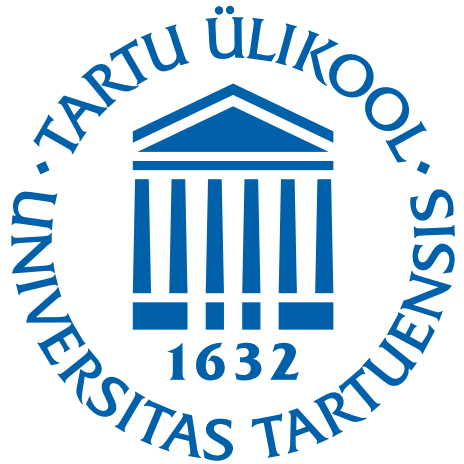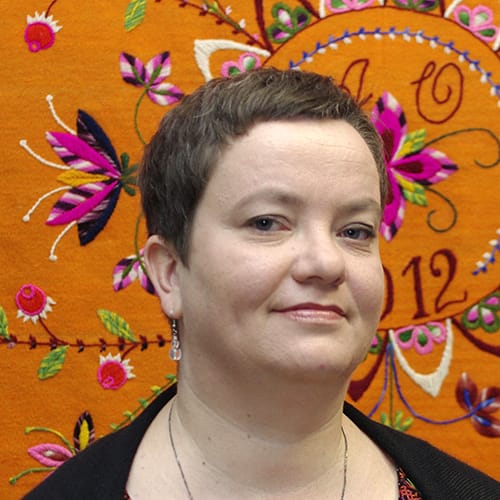
University of Tartu
Established in 1632, the University of Tartu is Estonia’s largest and oldest university. It is the only classical comprehensive university in Estonia. It has four faculties comprising a total of 32 institutes. The University of Tartu has around 14000 students and about 3500 employees. About half of the employees are academic staff, 63% of whom have a PhD. There are 220 professors at the university. According to THE World University Rankings 2023, the University of Tartu is among the top 1% of universities in the world. The University is renowned for its strong research focus, with many of its faculty members engaged in cutting-edge research across various fields. It is among 1% of the world’s most cited universities and research institutions in 15 fields of research. The University of Tartu offers a wide range of international degree programmes, as well as opportunities for research and international exchange. It has 66 partner universities from 26 countries. Around 1600 students are international students. The diverse student body from all over the world creates a multicultural environment, enriching the learning experience.
University of Tartu CULTURALITY TEAM

Elo-Hanna Seljamaa
Dr. Elo-Hanna Seljamaa is the Associate Professor of Estonian and Comparative Folklore, as well as the Holder of the UNESCO Chair on Applied Studies of Intangible Cultural Heritage at the University of Tartu. She has extensive experience in academic research, teaching, and international collaboration. Dr. Seljamaa’s research focuses on ethnicity, nationalism, and integration in Estonia and she is fascinated by living with difference as it is experienced in daily life and institutionalised in policies. She is consequently interested in processes of heritagisation and inclusions, exclusions and interventions by means of heritage management. She has led research projects and published widely on the intersection of intangible cultural heritage and belonging, with a focus on minorities, heritagisation and cultural diversity. She has substantial experience in curriculum development and carrying out outreach activities.

Ave Matsin
Ave Matsin is the head of the program of Estonian Native Crafts and a lecturer in heritage textiles at the University of Tartu Viljandi Culture Academy. Her main expertise lies in the field of heritage crafts and cultural heritage. In addition to her studies at the Estonian Academy of Arts (1995-2002), she also studied at Heimly Folk High School in Norway (1991-1992). Since 2001, she has been associated with the University of Tartu Viljandi Culture Academy. Her primary research interests encompass heritage and its connections to sustainability and creative entrepreneurship but also local craft materials, archaeological textiles and craft research. Beyond her academic work, she is engaged in several societal activities. Since 2020, she has coordinated activities related to UNESCO’s Creative City of Crafts and Folk Art in Viljandi. She is also an active member of various organisations, including the Estonian Folk Art and Craft Union (as a member of the board), the Estonian Intangible Heritage Council, and the Estonian Folklore Council.

Kristi Jõeste
Kristi Jõeste (MA in semiotics and culturology) has been a native textile lecturer at the University of Tartu Viljandi Culture Academy since 2008, and has also led several study programs, most recently the “Creative Applications of Cultural Heritage” Master’s curriculum (until 31.08.2024). She mainly teaches craft research methodology, various traditional textile techniques and has also practiced as a glove knitter and trainer for 20 years. Kristi has been nationally recognized for the last time in 2021, when the Estonian Cultural Endowment awarded her the main prize of the folk culture endowment fund for the compilation of the popular scientific book “Estonian mittens. Estonian knitting vol 3” (Saara Kirjastus 2021, EST/ENG). She had several solo/group exhibitions, and she also constantly helps to curate craft exhibitions.

Siarhiej Makarevich
Siarhiej Makarevich is a junior research fellow at the UNESCO Chair on Applied Studies of Intangible Cultural Heritage, University of Tartu. At present, he is pursuing a PhD degree in ethnology at the same university. He earned an MA cum laude in “Folkloristics and Applied Heritage Studies” from the University of Tartu, specialising in the study and application of the heritage of craft. His research interests focus on applied studies of intangible cultural heritage and its intersections with the sustainable development agenda. In addition to his academic background, he has professional experience in the heritage sphere, as well as hands-on experience as a crafts practitioner.

